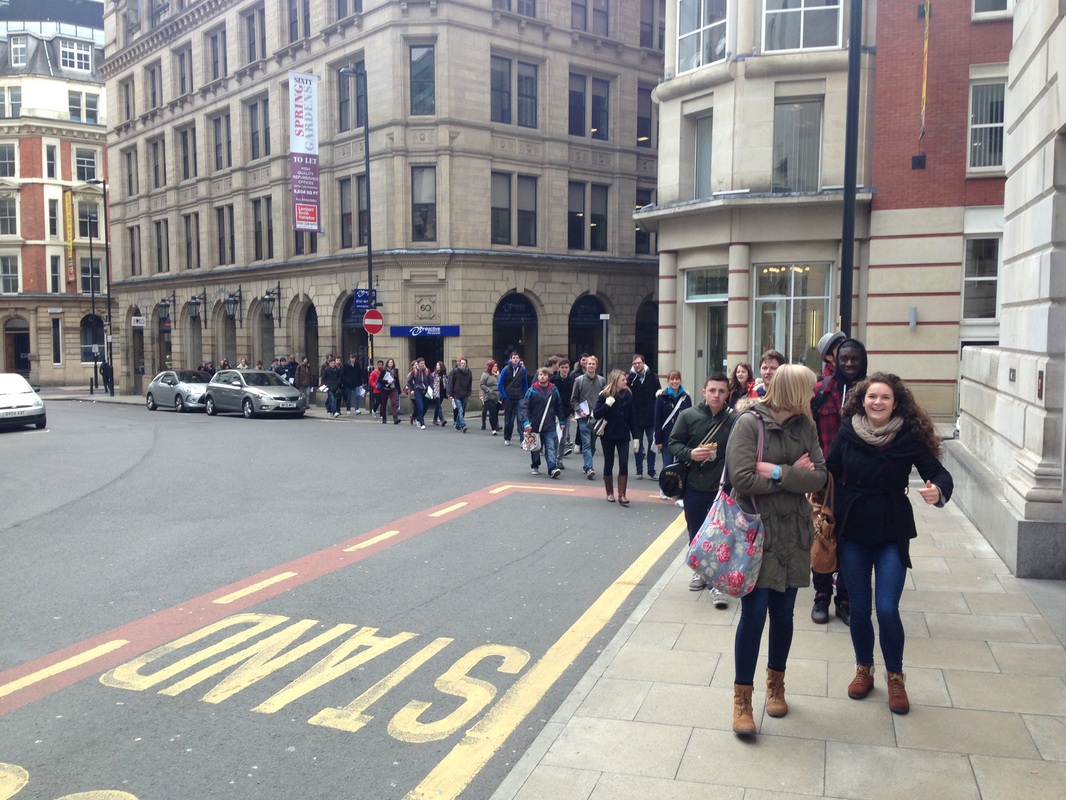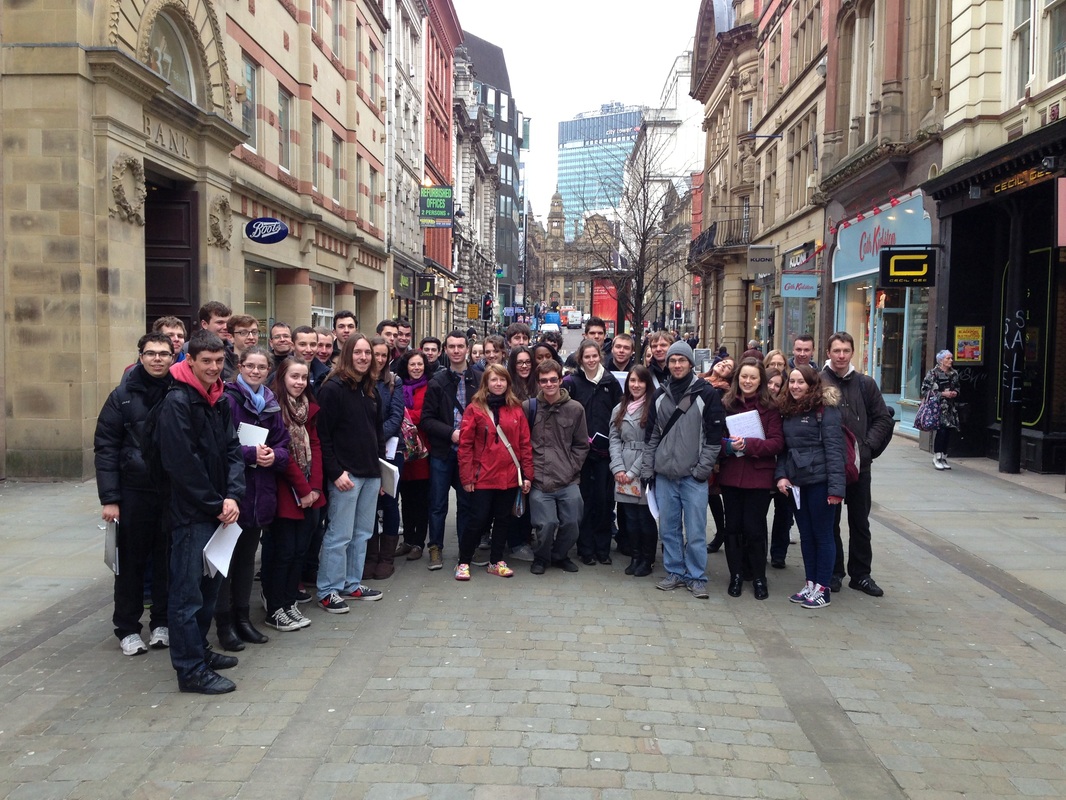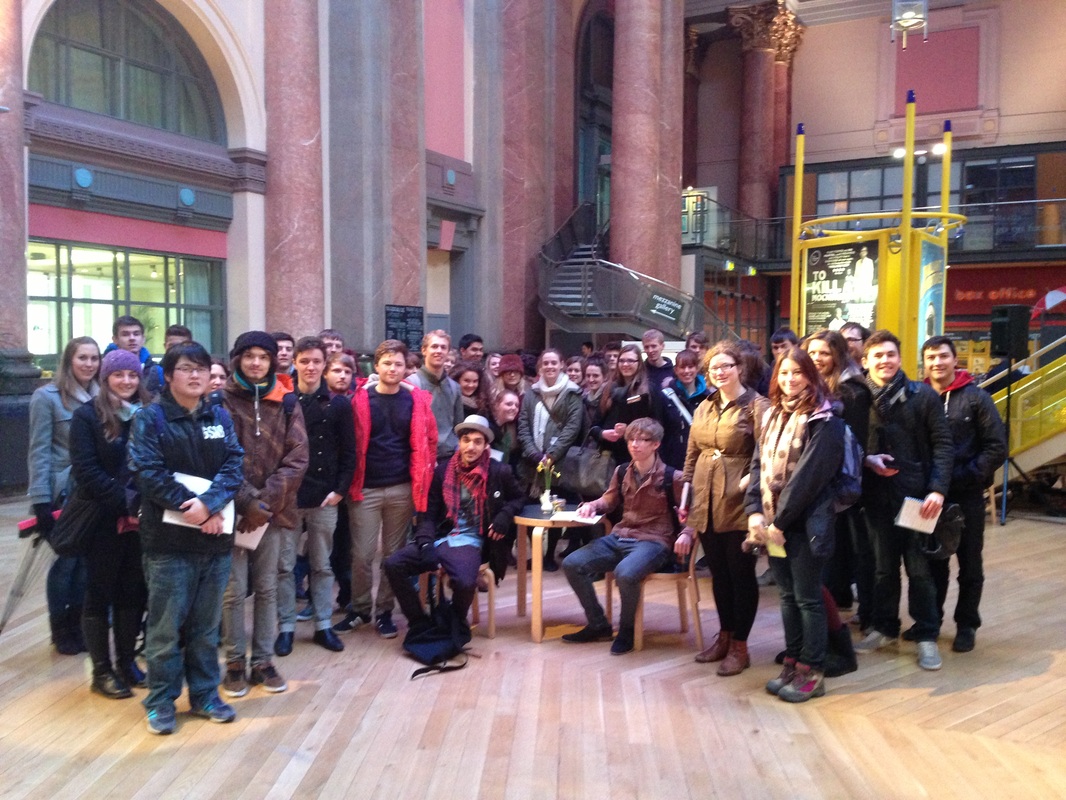One tour at 10.30am, second tour at 12.30pm.
The picture shows the first group above stretching into the distance as we walked along Spring Gardens.
They were studying a 'Geographies of Political Economy' module, particularly with reference to post-industrial change.
Manchester seems the incubator for such studies. Its history of retrenchment and reinvention draws in academics from around the world.
On these tours we looked at the redevelopment and changes around the canals, Spinningfields, the area around Oxford Road Station, Chinatown and the Village and in the central areas.
We discussed how Manchester is an exception to other ex-industrial major UK cities in the way the demographics have worked out.
Most of the wealthier residents of Greater Manchester live just over the administrative borders of the City of Manchester. This means that the city itself has, since the eighties, had a largely Labour voting, and poorer, population profile.
Thus for nigh thirty years Manchester has been effectively a one party state. This is bad for democracy in that it makes people shrug their shoulders and say, 'Why bother voting if it's always going to be the same lot in power'. As a result Manchester has shameful voter turnouts.
But the situation enables the best officers in the council, both political and civil service, to plan long term and deliver on ideas for major projects such as concert halls, arenas, conference facilities, transport, even major events and festivals such as the Commonwealth Games and Manchester International Festival.
Not that the students were simply concerned about economics and politics, they also wanted to know where to go out and where to eat. So I told them. Life can't be all study. Music and food makes the economy tick as well.



 RSS Feed
RSS Feed